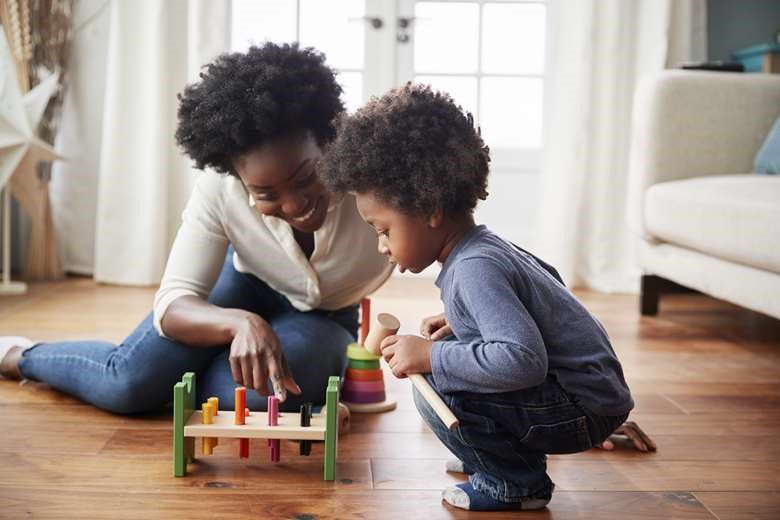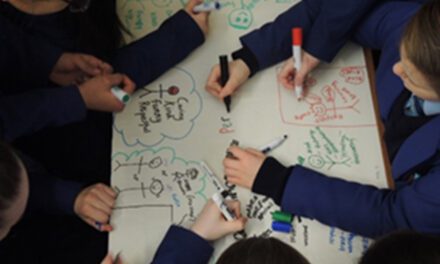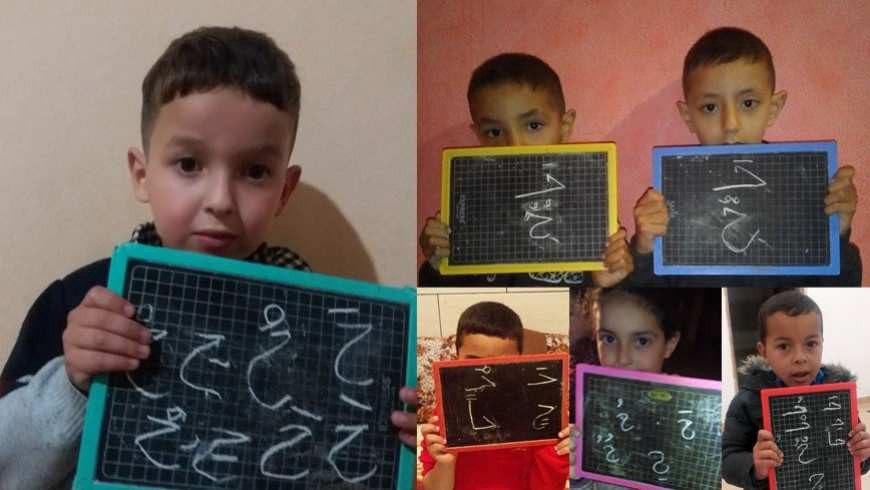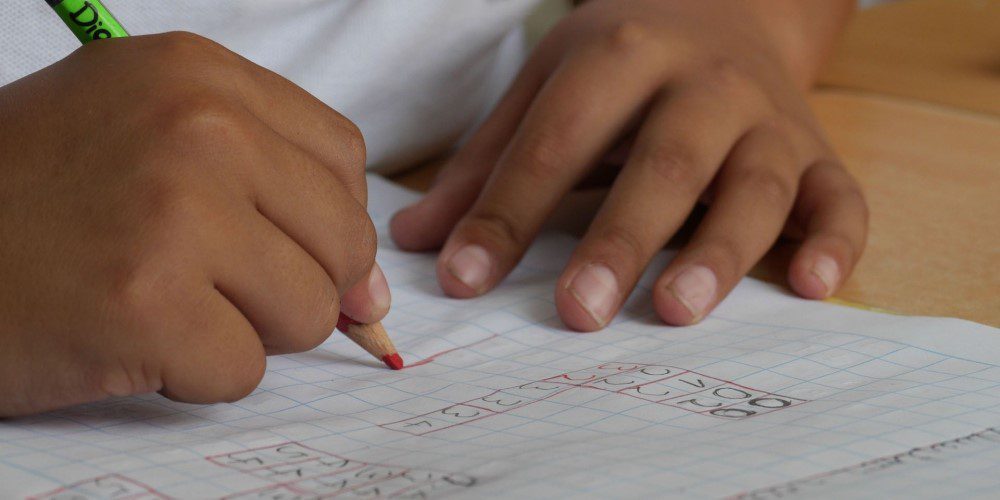This article was written by Lyn Challender, Early Years Professional Development Adviser with Education Development Trust. It was originally published in the Early Years Educator magazine on 13 May 2020 and on the Education Development Trust website.
The adjustment to remote learning during Covid-19 school closures has been difficult for many parents, but not least those of the youngest children, for whom there are additional complexities. Many parents will not share the understanding of child development of their early years practitioners. Here, Lyn Challender, Early Years Professional Development Advisor, provides helpful insights as to where and how early years professionals can best support parents while their young children are at home.
Parents are currently grappling with a whole new world of responsibility for the education of their children, in circumstances where it is less-than-ideal to expect anyone to take on a role that is outside of their comfort zone. Social media and the news are filled with stories about the challenges of home schooling, with many centred around how parents are feeling pressured to provide educational experiences to fill the void that has been left while their children are not in formal educational settings.
For parents of very young children, there are additional complexities: in order to provide good quality early learning, they will need to understand the basics of child development, the importance of learning through play and how to follow children’s interests. This is where early years settings can play a vital role in supporting parents with simple advice and clear guidance on how to support young children while they are at home.
Routine
Routines help young children feel safe and secure. Adding some structure into each day may seem obvious, but early years practitioners can provide some useful tips to parents. By sharing the everyday routines that shape a typical day in an early years setting, they can give parents the opportunity to replicate these at home. Quiet times, story times, snack times and tidy-up times are all carefully built into a child’s day in nursery, and replicating these at home can help break each day into manageable chunks and provide children with some normality in familiar routines. Songs or music typically used at certain times of the day, chants used to encourage tidying up, and strategies used to navigate from one activity to another can all be modified or copied at home. This will also help with children’s transitions back into their early years setting, when the time comes.
Resources
Although it will be tempting for many parents to purchase what they think are suitable resources to help their children learn, there is a key role here for early years practitioners to steer parents away from this temptation. The early years workforce are highly skilled in providing high quality learning experiences with ‘free and found’ resources. Advice to parents on activities that they can provide for their children using everyday household objects will be very welcome. It might come as a surprise to many parents that their time is the most valuable resource. It may also be valuable to encourage parents to use outdoor space, not just for fresh air, but in the same way that early years settings do – taking indoor activities outside brings a whole new dimension to the experience. Moreover, it will be standard practice in many homes to use technology to keep children entertained and occupied: early years settings can steer parents towards the more educationally beneficial apps and help them to navigate through the wide range of online resources that are available. The Department for Education’s Hungry Little Minds campaign, eyfshome.com, and Easy Peasy are good starting points.
We are undoubtedly more reliant on technology than ever before, but we know that no app or device can replace an adult who is skilled at supporting young children learn and develop. It is therefore critical to remind parents of the importance of good quality adult/child interactions and provide them with simple ideas of what to do.
Real-life activities
Involving children in everyday tasks provides a host of learning opportunities. Sharing ideas on how to develop language whilst doing the washing up, how to encourage maths skills whilst preparing meals and setting the table, and how to develop fine and gross motor skills by pegging out washing or digging in the garden are all good examples. Early years settings can encourage parents to move away from ‘formal’ learning activities with young children, by providing more examples of this nature. Such activities are likely to relieve parents of the pressure they feel to ‘teach’ younger children.
Recognition
It is important for parents to recognise that many aspects of life feel different and unsettled at the moment and that this will impact on the emotional wellbeing of children just as it does on adults. Early years settings can provide supportive and reassuring messages to parents, encouraging them to not put themselves under pressure. It may be helpful for them to remind parents that most children’s behaviour is simply just a form of communication and to look beyond the toddler meltdown for what the child is trying to communicate – whether it is “I’m tired”, “I’m hungry” or simply “I’ve had enough”.
Whatever systems early years settings have in place to communicate with parents while they are closed or on reduced staffing, skilled early years educators can be a lifeline to parents. The most important thing to remember is that those skills that are second nature to practitioners who are committed and passionate about early years education will not necessarily come naturally to parents. Early years settings are used to working extremely closely with parents and have the greatest respect for parents as children’s first educators. Their support, at this very moment, has never been more crucial.





